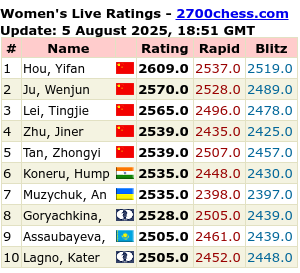I wished for an interesting opening, and both GMs co-operated today to produce a club-players opening with the Italian Game !
Personally, I always enjoy it when GMs produce the older openings. ( For example, last time I saw a Nigel Short game was a King's Gambit ! )
Doubtless there are many practical reasons why they do this. Perhaps wariness ( or even weariness ! ) of preparation and technical novelties, or maybe just a desire to play a more standard middle-game. I don't know, and I am certainly not the person to comment !
Regardless, this was an enjoyable game from my point of view.
I started following this from work and later I even managed to catch the live commentary from a rather excited Andrew Martin ( and with better sound today ).
I could establish that the first ' new' move was probably 12...Ne7
 |
| Short-Adams 12...Ne7 |
Here, even I could see that White probably had a small advantage after the exchange of Bishops on a7, and by the time I arrived home and could actively follow the commentary, they had reached the following position, about which the commentators were a bit excited...
 |
| Short - Adams 31. gxh |
Here, with Adams short on time, the recommendation ( which seemed good to me ) was 31. h4, with the idea of a solid positional move ' turning the screw' as Martin put it, and forcing Adams to think more, use time and find a plan for Black.
Unfortunately, Nigel Short chose 31. hxg6, and after 31,...Qb6+ 32. Kh1 Qxh6, Black seemed to gain activity and after 15 more moves of manoeuvring, they finally agreed a draw.
For me, it was interesting to watch, and very interesting to hear the advice, ie in time trouble, make moves that, although they may not be the best, force the opponent to use clock time and also to think. Simple tactics ( or checks ) just help the opposition and allow him to gain time.
So, possibly not the most important theoretical struggle between Grandmasters, but an enjoyable game.
The other games that excited the commentators were Hawkins-Conquest ( where Stuart Conquest's play was described as 'unorthodox' and 'Réti-like', although he made a mistake and crashed out quickly ) and Houska-Pert.
Here, the excitement of finding a win ( or certainly a winning combination ) for Houska, was replaced by disappointment when she didn't follow through, later putting herself almost in
zugzwang, and so effectively slipping into a losing ending of Rook + pawns vs Knight + pawns. She resisted well, but Pert's technique was more than good enough to win.
Again, the interesting comments as to why she played as she did, was that it was her style to play more quietly and solidly. A more active or attacking player, they thought, would have played the winning continuation.
Great players, they observed, are able to switch styles of play to suit the position : surely a good attribute for any chess player !
Looking forward to the next round tomorrow, with the leaders Adams and Short probably meeting the third and fourth players, Gawain Jones and Nick Pert respectively. I reckon the Pert-Short game ( if that is the pairing ) will be the interesting one, as both are playing well at the moment.
By the way, for those bloggers following the
Road to Grandmaster's Will Taylor ( Oxidised Lizard to T45 Leaguers ) he is also playing, but in the
Major Open.
A great start saw him matched against higher-rated opponents in the last three rounds, and his early wins have switched to draws .
Even so, he is putting in a good performance with a Tournament rating much higher than his current. Good luck to him in the next round, and here's hoping we see some of his games analysed on his blog !













































